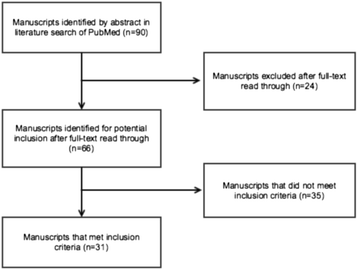Vitamin D status and surgical outcomes: a systematic review
- PMID: 25926889
- PMCID: PMC4413543
- DOI: 10.1186/s13037-015-0060-y
Vitamin D status and surgical outcomes: a systematic review
Abstract
The importance of vitamin D for musculoskeletal health has long been recognized, and awareness of significant extra-skeletal effects in health and disease is rapidly emerging. Although it has been possible for many decades to quantify serum markers of vitamin D deficiency, and to correct deficiency at low cost and with high safety, the influence of vitamin D status on post-surgical outcomes has only recently been identified as a research topic of interest. To the present, these data have not been the subject matter of formal review. Accordingly, we conducted a systematic review to assess the association between perioperative vitamin D status and outcomes after surgery. The databases of PubMed, Ovid MEDLINE, EMBASE, AMED, CINAHL (EBSCOHost), The Cochrane Databases of Systematic Review, and PROSPERO were searched through December, 2014 for studies relating to vitamin D and surgery. The initial search yielded 90 manuscripts. After applying exclusion criteria, 31 studies were eligible for inclusion. Fifteen studies employed prospective observational designs, 3 used prospective randomized protocols, and 13 report retrospective database interrogations. The main finding of the present review is that 26 of 31 studies (84%) report at least one statistically significant worse outcome in patients with low vitamin D status. Five of 31 studies (16%) found no association. In conclusion, this review supports the hypothesis that hypovitaminosis D is associated with adverse outcomes after diverse surgical procedures. Future studies should focus on additional surgeries and outcomes, and on the role of vitamin D supplementation in the improvement of patient safety in participants with low vitamin D status at the time of surgery.
Keywords: 1,25-dihydroxyvitamin D3 (calcitriol); 1,25-dihydroxyvitamin D3 (calcitriol) level; 25(OH)D (calcifediol); 25(OH)D (calcifediol) level; Postoperative complication; Postoperative outcome; Surgery complication; Surgery outcome; Vitamin D.
Figures
References
-
- Zajic P, Amrein K. Vitamin D deficiency in the ICU: a systematic review. Minerva Endocrinol. 2014;39(4):275–87. - PubMed
Publication types
LinkOut - more resources
Full Text Sources
Other Literature Sources
Medical


